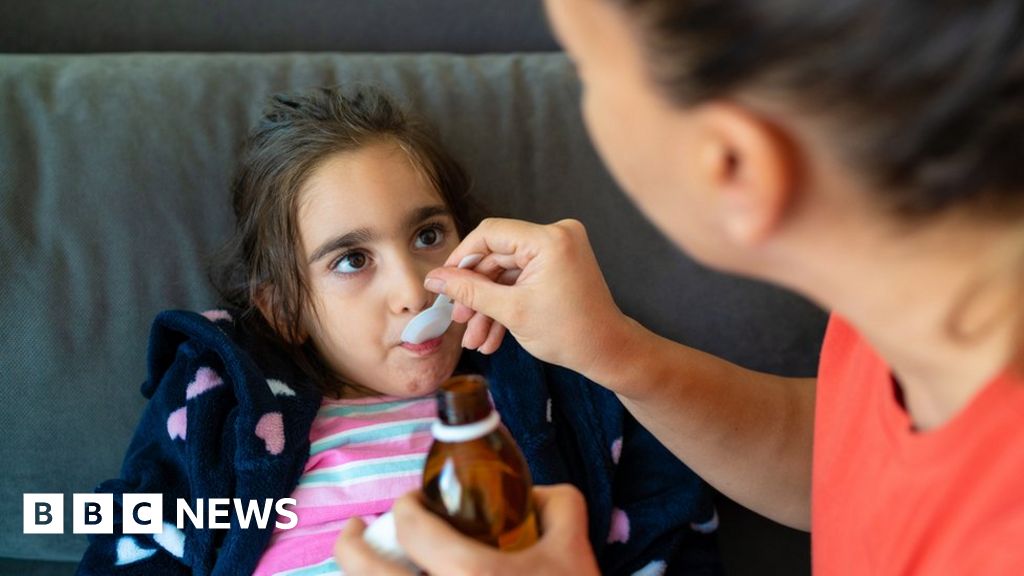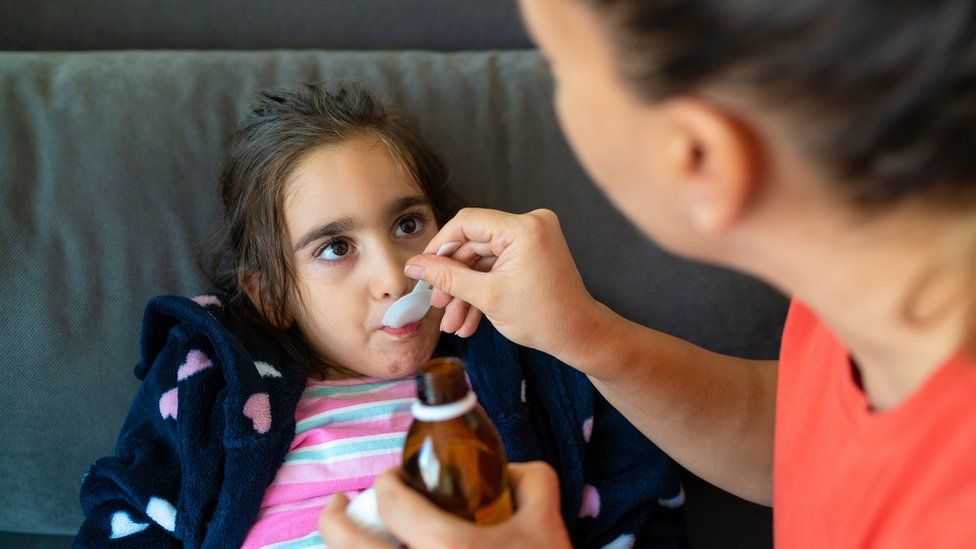 Getty Images
Getty ImagesDeliveries of antibiotics for the treatment of group A streptococcus infection are being sped up to reach wholesalers and pharmacies across Northern Ireland in the coming days.
The Department of Health said supplies are available from manufacturers but the issue is distribution.
There has been a surge in demand for antibiotic supplies for treating strep A and other related viral infections.
There are reports of low supplies in some locations.
GPs and pharmacists across Northern Ireland have voiced concern about supplies.
Last week Community Pharmacy NI said that their issue was over funding and being unable to afford purchasing supplies of antibiotics in advance.
As of Thursday, 15 UK children had died after invasive strep A infections since September.
In a statement to BBC News NI, a Department of Health spokesperson says “supplies are readily available in manufacturers”.
At present, “deliveries into wholesalers and pharmacies are being expedited and are expected in the coming days”.
The statement added that its hoped this should help “alleviate pressures”.
- Strep A: What is strep A and what are the symptoms?
- Five-year-old girl dies from illness linked to strep A
- Health trust plans to reduce strep A hospital risk
This will take several days though to filter through.
Also, local pharmacy teams are working together to asses availability of antibiotics required to treat strep A locally and to order appropriately in line with patient demand to avoid putting more pressure on the supply chain.
What is Strep A?
Most strep A infections are mild – a sore throat or a skin infection that can be easily treated with antibiotics.
But some people who catch it can get very sick.
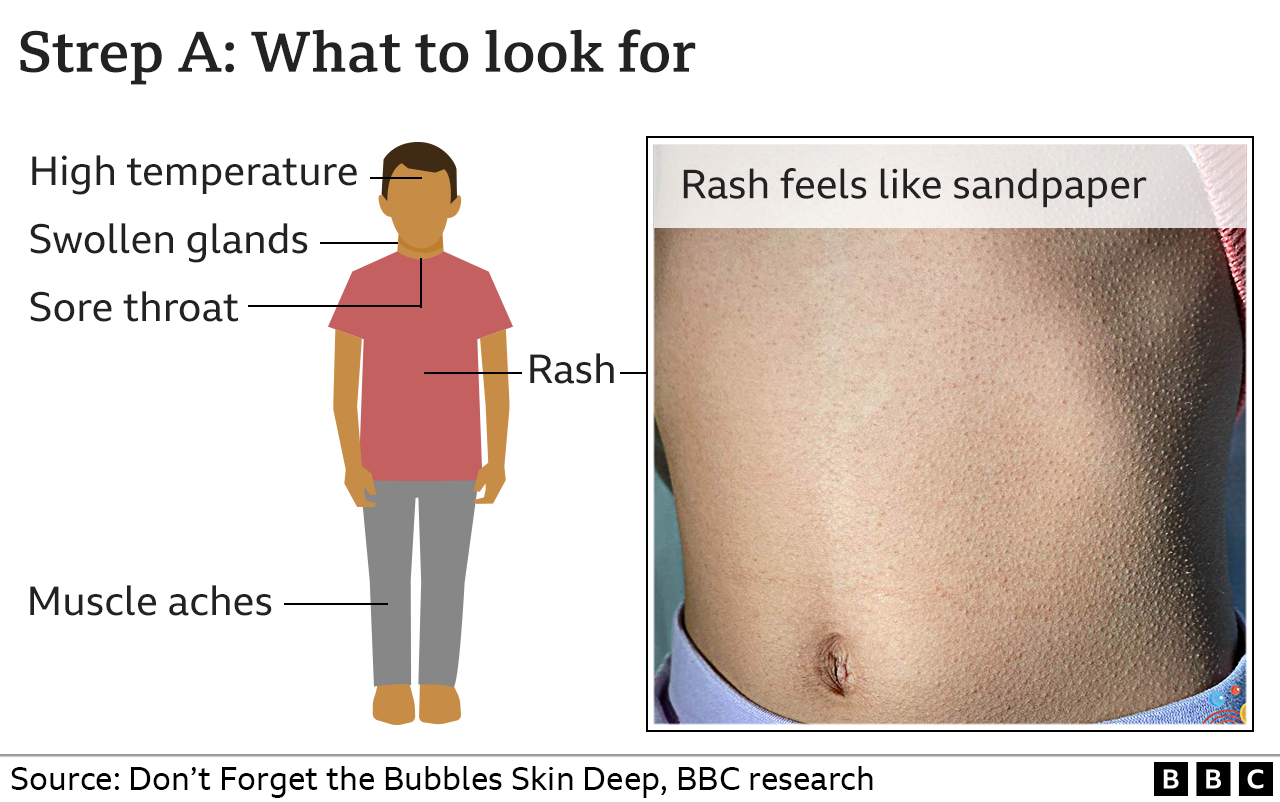
Some people develop scarlet fever, which causes a skin rash (that feels like sandpaper) and flu-like symptoms, including a high temperature.
Figures show there were at least 104 cases of scarlet fever in Northern Ireland in November, up from 43 in October.
Very rarely, strep A can cause something called invasive group A streptococcal infection or iGAS, which can be deadly.
Invasive disease happens when the bacteria get past your body’s immune defences.
The government said that during a similar period in 2017-18 – the last high season for iGAS infection – there were four deaths in England.
But the number of cases of iGAS – the most serious form of infection – is 33 so far in 2022, compared to 55 in 2018 and 72 in 2019, before the pandemic.
The Public Health Agency said there was no indication Northern Ireland was seeing more deaths from iGAS than in previous years.
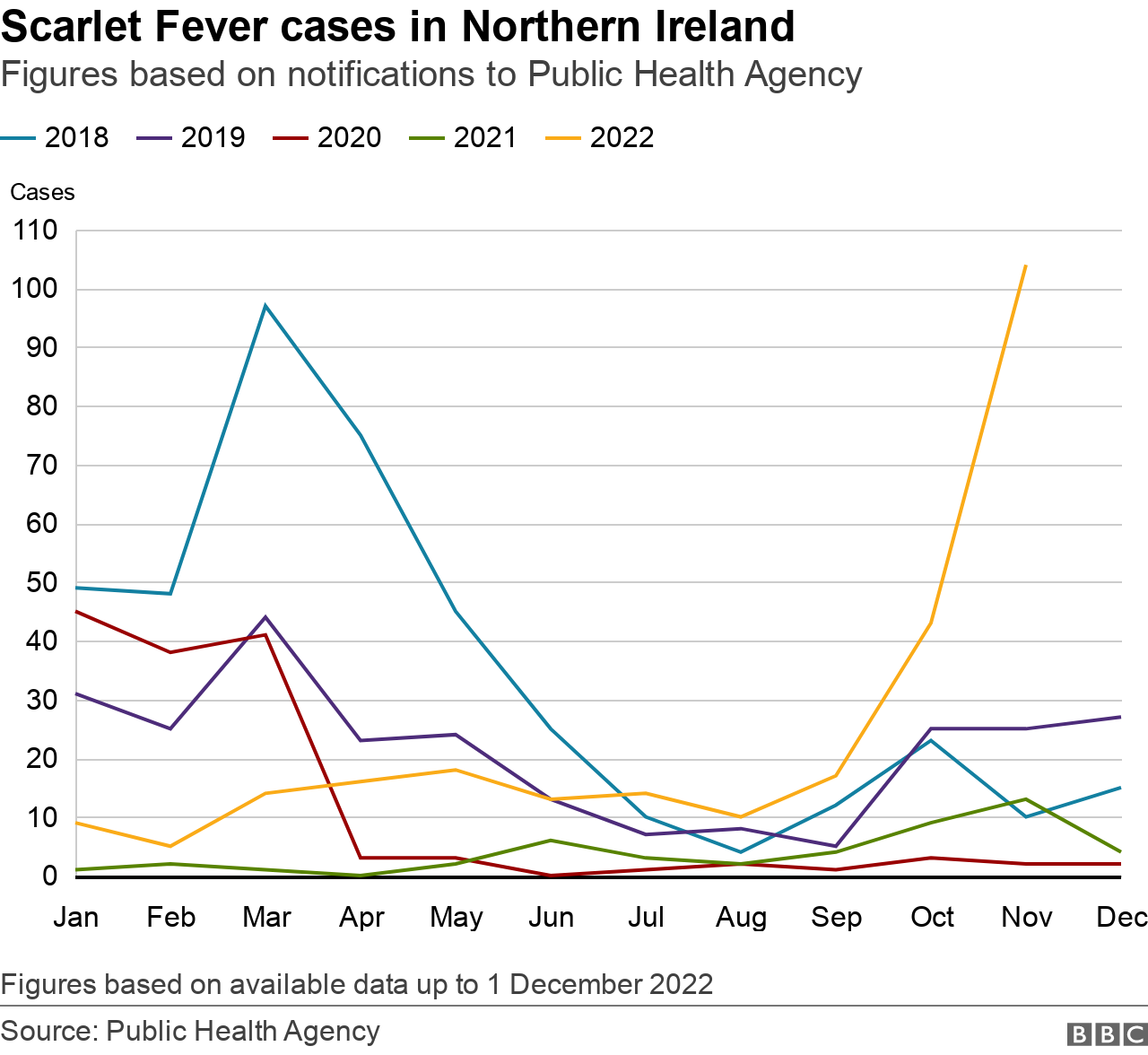

What should parents do?
As a parent, if you feel that your child seems seriously unwell, you should trust your own judgement. Contact your GP if:
- your child is getting worse
- your child is feeding or eating much less than normal
- your child has had a dry nappy for 12 hours or more or shows other signs of dehydration
- your baby is under three months old and has a temperature of 38°C, or is older than three months and has a temperature of 39°C or higher
- your baby feels hotter than usual when you touch their back or chest, or feels sweaty
- your child is very tired or irritable
Call 999 or go to A&E if:
- your child is having difficulty breathing – you may notice grunting noises or their tummy sucking under their ribs
- there are pauses when your child breathes
- your child’s skin, tongue or lips are blue
- your child is floppy and will not wake up or stay awake
-
Strep A: What is strep A and what are the symptoms?
-
2 days ago
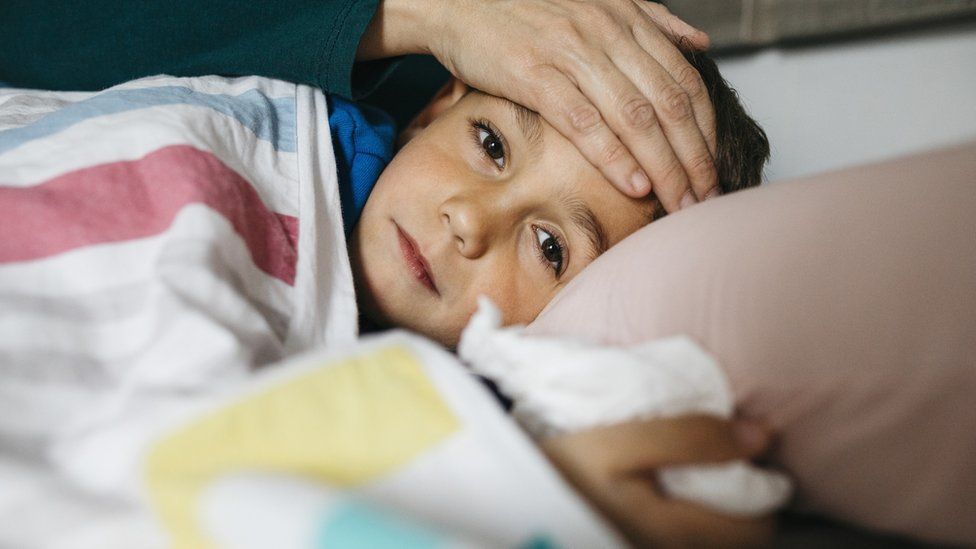
-
-
Strep A cases expected to level off soon – doctor
-
2 days ago

-
